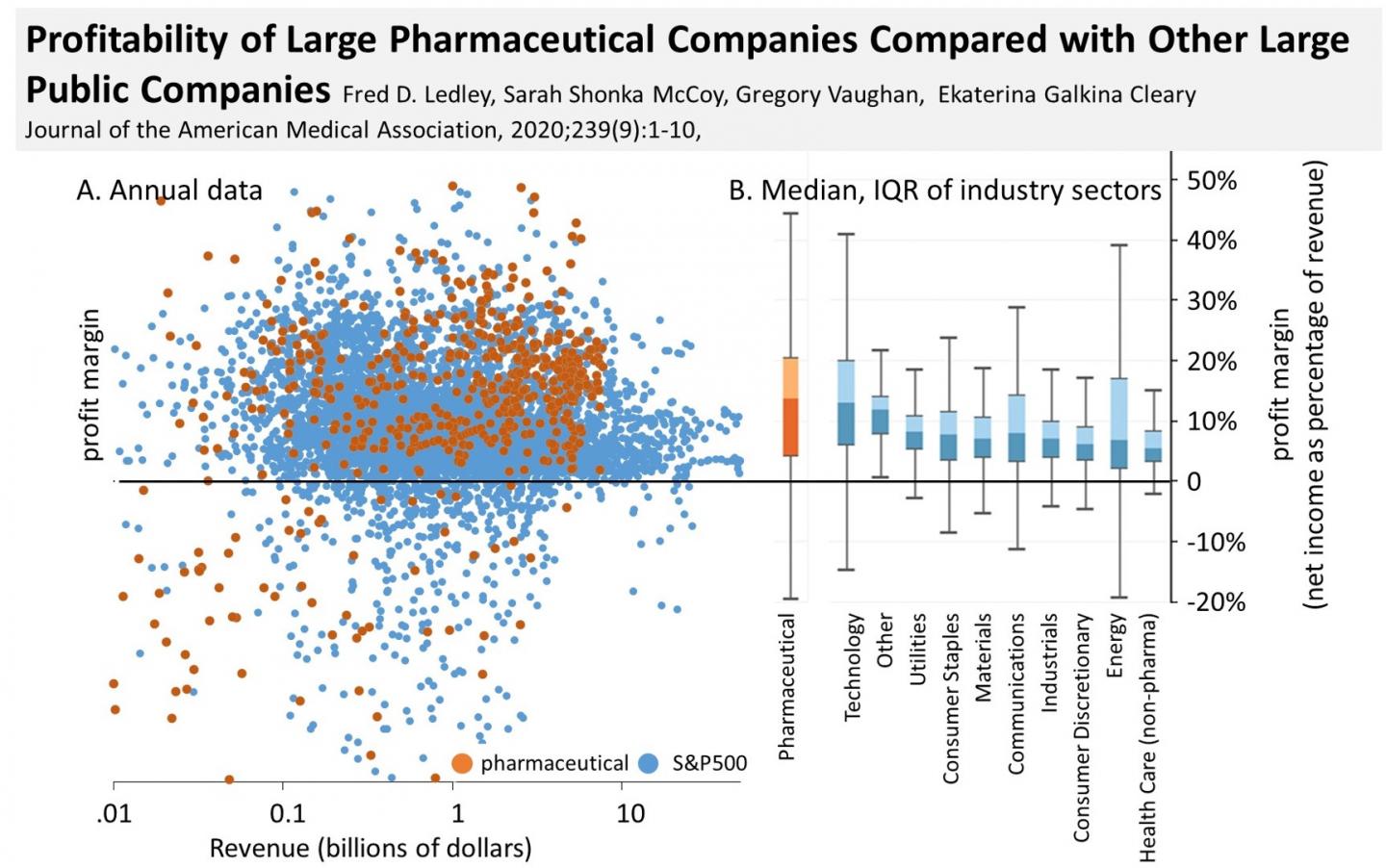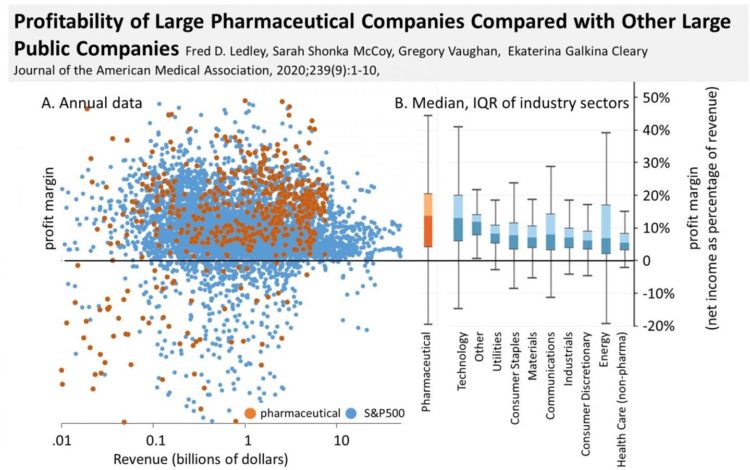Profits are closer to other research-based companies and comparable to companies in the technology sector

Credit: Bentley University
Large pharmaceutical companies are more profitable than most companies in the S&P 500 according to a study published in the Journal of the American Medical Association (JAMA) titled “Profitability of Large Pharmaceutical Companies Compared with Other Large Public Companies.” Pharmaceutical profits were closer to those of other research-based companies within the S&P 500 and were not higher than companies in the technology sector.
The study from the Center for Integration of Science and Industry at Bentley University is the first to critically examine the profitability of the companies that are responsible for the development, manufacturing, marketing and sale of most medicines. The results may inform policies to ensure both the affordability and availability of essential medicines now and in the future.
The study was undertaken in the context of public opinion surveys showing that 80% of respondents believe the profits made by pharmaceutical companies are a major factor contributing to the price of prescription drugs. “While there is extensive research on the health impacts of unaffordable drugs, there has been little research on the profitability of pharmaceutical companies,” said Dr. Fred Ledley, director of the Center for Integration of Science and Industry, and the senior author of the study. “Developing policies to assure the affordability of essential medicines will also require an understanding of how reducing drug prices may impact the industry that makes these drugs available.”
The Bentley University study compared the profits of 35 large pharmaceutical companies with those of 347 companies from the S&P 500 Index. During the period from 2000 through 2018, the pharmaceutical companies had a cumulative revenue of $11.5 trillion and cumulative net income of $1.9 trillion. Net income, also called “earnings,” reflects the difference between all revenues and expenses and is a company’s “bottom line” used in calculating earnings per share. Over this same period, the median net income margin (the percentage of revenue remaining after deducting all expenses) for pharmaceutical companies was 13.7% compared to 7.7% for S&P 500 companies, a difference of 6.1%. However, when comparing pharmaceutical companies to those S&P 500 companies reporting research and development expenses and considering the effects of company size and time trends, the difference in median profits was 3.6%, and pharmaceutical companies were not more profitable than those companies in the technology sector or healthcare companies developing non-pharmaceutical products. Over the past five years, from 2014-2018, there was no significant difference in net income margin between pharmaceutical and S&P 500 companies.
These estimates of pharmaceutical profit margins were lower than those used by the National Academies of Science in their 2017 report, Making Medicines Affordable: a National Imperative.
The Bentley study focused explicitly on large pharmaceutical companies, which provide the large majority of all medicines. In 2018, these companies had a combined market value of $2.4 trillion, directly employed 992 thousand people, and expensed $120 billion for research & development of new medicines. Pharmaceutical companies represent only one element of the pharmaceutical distribution system, which also includes pharmacy benefit managers, wholesalers, pharmacies, and healthcare providers as well as academic laboratories and biotechnology companies involved in basic and applied research leading to the development of new medicines.
###
Dr. Fred D. Ledley, Professor of Natural & Applied Science and Management was the lead author of this work, along with Dr. Sarah Shonka McCoy, Assistant Professor of Accountancy; Dr. Gregory Vaughan, Assistant Professor of Mathematical Sciences; and Dr. Ekaterina Galkina Cleary, Lead Data Analyst. This work was supported by a grant from the National Biomedical Research Foundation.
THE CENTER FOR INTEGRATION OF SCIENCE AND INDUSTRY at Bentley University focuses on understanding and accelerating the translation of scientific discoveries to create public value. The Center is an environment for thought leadership and interdisciplinary scholarship spanning basic science, data analytics, business and public policy. For more information, visit http://www.
BENTLEY UNIVERSITY is more than just one of the nation’s top business schools. It is a transformative lifelong-learning community that inspires and prepares ethical students to use their business know-how to make a positive difference in the world. With a blend of business, technology and the arts and sciences, Bentley provides students with critical thinking and practical skills to help them collaborate effectively in different settings and prepare them to lead successful, rewarding careers. The university enrolls approximately 4,200 undergraduate and 1,000 graduate and PhD students. Bentley was founded in 1917 and is set on 163 acres in Waltham, Massachusetts, 10 miles west of Boston. For more information, visit http://www.
Media Contact
Helen Henrichs
[email protected]
781-891-2277
Related Journal Article
http://dx.





